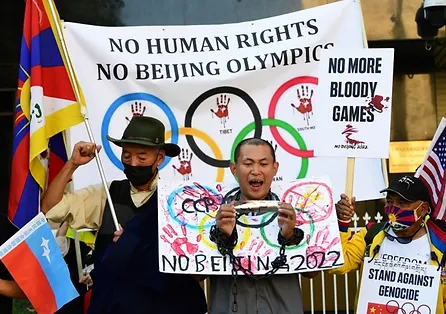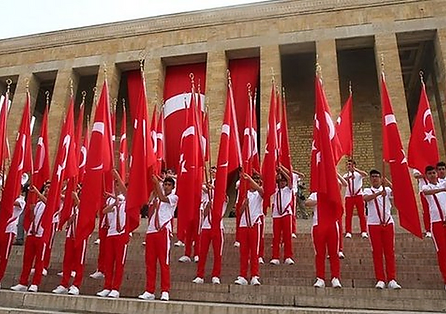
The “Genocide Olympics” of 2022

The People’s Republic of China is more than enthusiastic about hosting the Winter Olympics of 2022 in its capital city Beijing. However, many others are not so enthusiastic about this event. The opposers claim that China is not a suitable host for this event, citing various human rights abuses -including concentration camps, forced sterilization, suppression of religious rights- an overall totalitarian and corrupt regime, and an aggressive foreign policy. The question is, what is being done?
So far, 7 countries have announced that they will be boycotting the Beijing Olympics diplomatically. The USA, UK, Canada, Australia, Lithuania, and Kosovo have openly cited China’s human rights abuses as the reason for their boycotts, while New Zealander officials said they are just being cautious about Coronavirus. This means athletes from these countries will attend the games as usual, but a diplomatic delegation will not accompany them.
Chinese government officials have accused the protesting countries of politicizing what is supposed to be an apolitical and unbiased celebration of athletic prowess. Yet, the Chinese Ministry of Foreign Affairs has announced an indifference towards the attendance of foreign diplomats and politicians.
While Chinese officials have tried to sneer at the diplomatic boycott, it certainly is not in vain. In the 2008 Olympics, China has drastically improved its image abroad, and it has also been trying to boost its perceived image by sponsoring Western movies that portray it in a positive light. From this, we can easily see how sensitive China is about its image, and no doubt hosting the Olympics is a part of this effort. The boycott, no doubt, will cast a shadow on this.
The second tangent of this image issue is the internal aspect. It is fair to assume that the Chinese people will not be able to access news about this boycott as easily as many of their foreign counterparts. Nonetheless, there will certainly be those who will find out about this, and doubtful their reception of an international protest of their governments' genocidal actions will improve their opinion of the Chinese Communist Party. While small, the boycott still will be a step in the right direction in this regard.
The tragedy of this boycott is how small and meek it is, with many countries -even those with close cultural, linguistic, historical, and religious ties to the Uyghur people who are being subjected to the ill-treatment of the Chinese government- are not attending.
In conclusion, while the diplomatic boycott is a very small step, it is indisputably a step in the right direction. Considering the 2008 Beijing Olympics saw no official boycott, it should be cherished that governments are finally taking up action against the horrible policies of Chinese Communist Parties.






